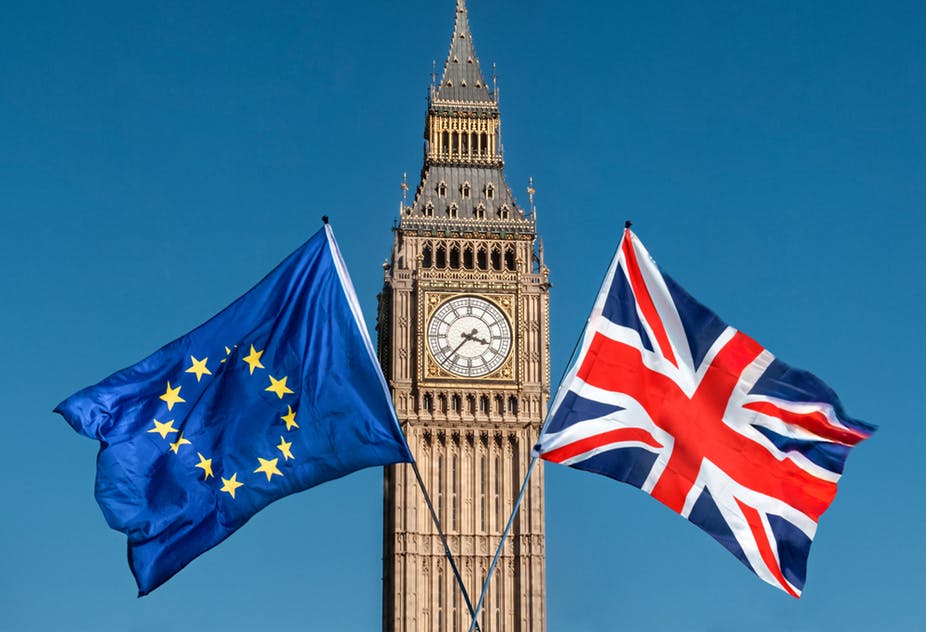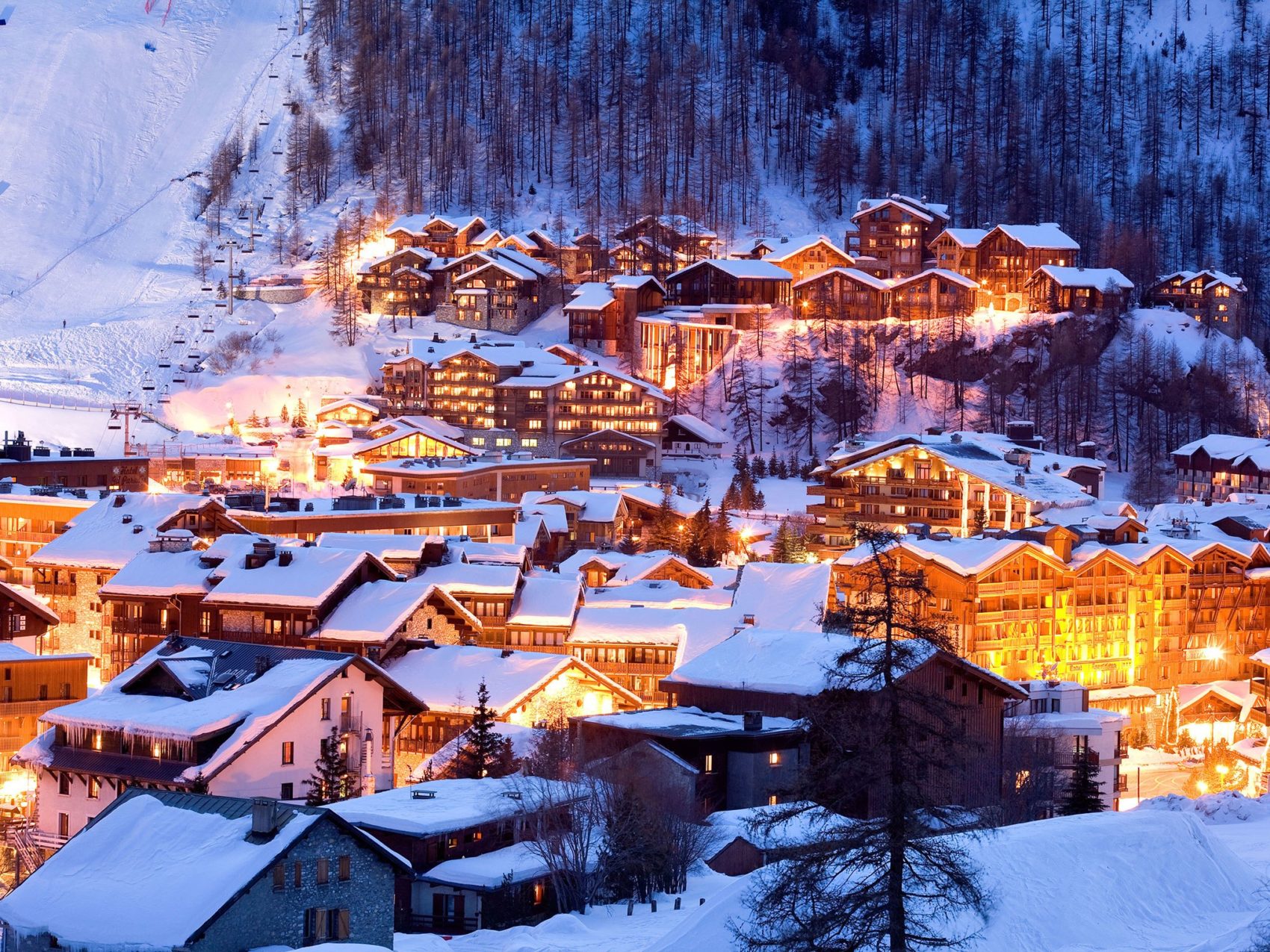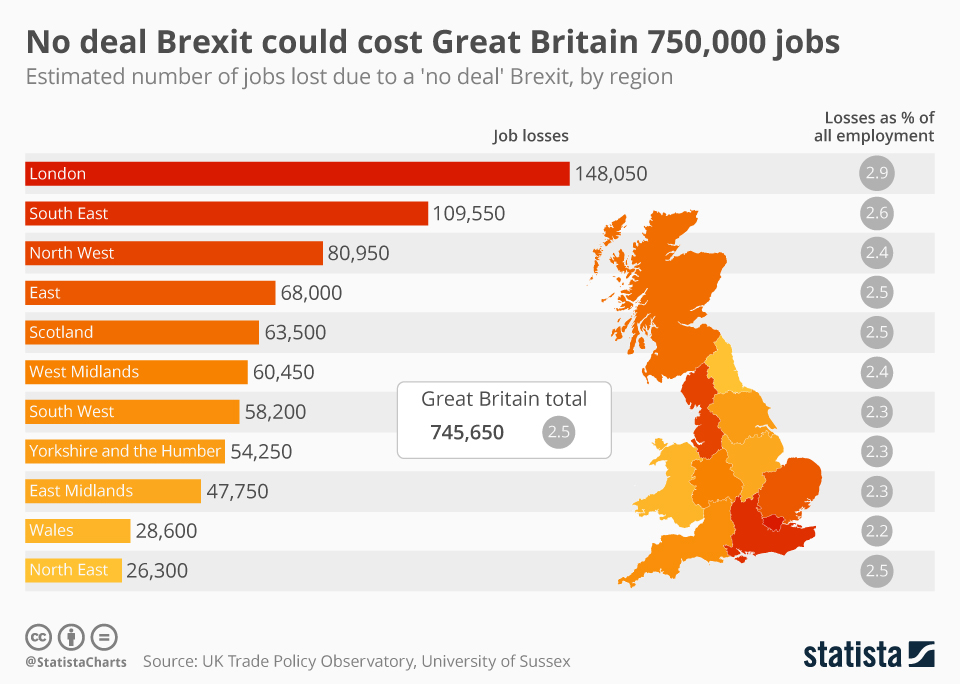
When the United Kingdom leaves the European Union on October 31st, thousands of European businesses will no longer be able to hire British staff on seasonal contracts. This could mean the loss of up to 25,000 jobs in the ski industry alone. It’s a potential threat for skiing-related businesses that hire seasonal employees. Some are even calling it “Brexodus.”
First of all, what exactly is a “No-Deal Brexit?” According to BBC News, “No-Deal Brexit” is a no-deal scenario, meaning that the UK would immediately leave the European Union (EU) with little to no time to negotiate a deal. The UK would basically “divorce” and leave the EU overnight.

Why is the UK planning to leave the EU? A public vote – or referendum – was held on Thursday, June 23rd, 2016, to decide whether the United Kingdom should leave or remain in the European Union. The proposition to leave won by a 52% to 48% vote. The referendum turnout was very high at 72%, with more than 30 million people voting. According to these statistics, 17.4 million people voted for Brexit. As of now, the UK is due to leave the EU on October 31st, 2019.

Currently, as Britain remains part of the European Union, the UK tourism industry can employ British staff to work in places such as the French Alps under the European Single Market’s rules on the free movement of labor. This means that Brits can work ski industry jobs in various parts of Europe without having to apply for costly visas or work permits. However, Brexit may change that.
According to recent research, up to 25,000 ski industry jobs may be lost when the UK leaves the European Union. This may not only harm the ski industry by lowering revenues and creating a shortage of jobs, but it may also drive the price of ski holidays up. Brexit also effects not only those employees but potentially threatens removal of strong businesses from the EU snow-industry landscape

The British tourism industry, which includes ski holidays, is heavily reliant on the use of seasonally employed staff. This sector alone produces around £9 billion for the UK economy. The UK economy also receives over £1 billion in tax revenues from British tourism staff working seasonal jobs in Europe during the winter. However, this is now in jeopardy as those jobs may be lost when the UK withdraws from the EU.
Right now, citizens of the UK can live and work anywhere in Europe, without the need for special visas or work permits. This keeps the costs of operating businesses and as well as average holiday prices low. But with the UK leaving the EU at the end of October, new legislation may be enacted that will no longer make this possible.

There are several benefits of the British working overseas at ski industry-related jobs. Brits often bridge the language gap between staff and customers. They are also eager to work for employers and spend winters in the mountains, making the overall recruitment process for employers smooth and inexpensive. These seasonal positions are also popular with younger-aged individuals looking to spend a gap year or get some traveling in. These jobs are good opportunities for both sides.
When Brexit is all said and done, British seasonal employees may have to start applying for visas and work permits that will drive operating costs up. This, in turn, may inflate the overall price of skiing in Europe – something we as skiers would hate to see. Post-Brexit, the mountains will still be there. However, the seasonal British workers in them may not be.
